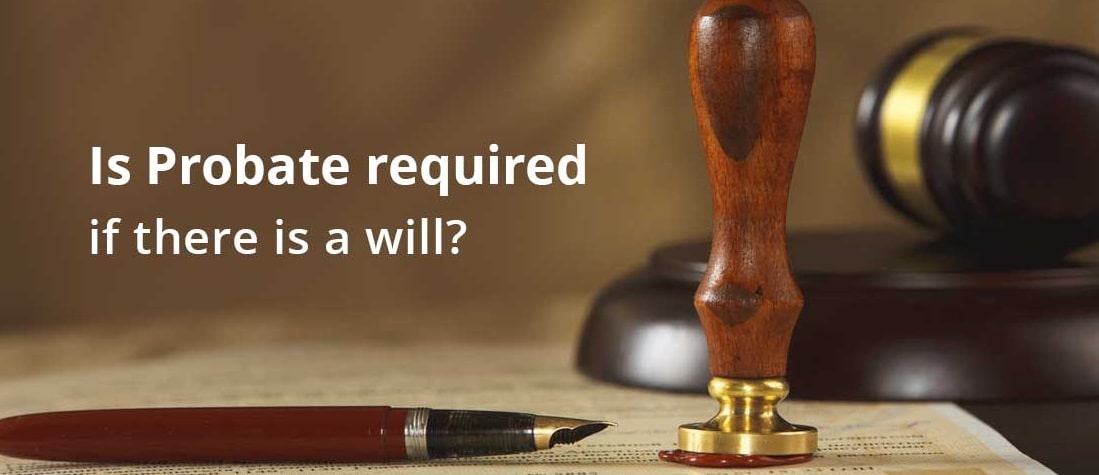When a loved one passes away, dealing with the estate can be tricky. Probate is the formal process that gives recognition to a will and then appoints an executor to administer the estate and distribute assets to the right beneficiaries. While probate isn’t necessary all of the time, if there is real estate or other property involved then it will likely have to go to probate unless steps have been taken to avoid the process.
If you don’t have a will then the estate will likely wind up in probate. No-will estates will usually fall under state succession laws. If there is no will to name an estate executor, then it may be necessary for the probate courts to be involved in order to sort out assets. However, if it’s a small estate and there is no will then it may not be necessary. The probate process can be complicated, which is why there are some laws in order to remove or simplify the probate requirements for any low-value or small estates.
Are the Assets Non-Probate or Probate?
One of the first steps in order to determine if probate is going to be necessary is determining if the assets are probate or non-probate. If the assets are non-probate, then you don’t need to go through the probate process. These assets are those held with other owners or ones with a named beneficiary. Some examples include assets owned jointly, savings or checking accounts in a transfer or death designation, or a life insurance policy that has a named beneficiary. In these cases, someone else is automatically named as the person who gets the assets. Some assets may not be probated but a majority of assets need to be. Some examples of assets that you can’t avoid probate for include personal items in a home, such as artwork and furniture. Real estate and vehicles that are solely owned by one person with no beneficiary listed are also included.
Times Probate Is Necessary
There are other times probate is necessary, besides if there is just no will.
When There Are Problems with the Existing Will: Just because someone made a will doesn’t mean it was done correctly. There are a number of different problems that can come up to trigger probate, even if there was a will done to avoid the process. It could be something as simple as not getting the will notarized. It’s important that you make sure wills meet state standards and proper steps have been taken to avoid probate.
If There Aren’t Any Beneficiaries: If a widowed or single homeowner without surviving children dies, then someone has to decide what to do with the property and this has to go through probate. Even if prior to passing away the homeowner draws up a will, the estate likely still needs to go through probate in order to sell the house.
When Probate Is Necessary to Carry Out the Valid Will: An estate may actually require probate to just carry out the terms and distribute the assets, even if there is a will. Sometimes this is necessary if there are creditors or debts that need to be paid before beneficiaries are able to take ownership. In some cases, if the decedent retains ownership of assets, such as the house, then probate facilitates the legal procedures that are needed to transfer ownership.
How to Avoid Probate
There are some ways to avoid probate. Estates that are small in value and size aren’t the only estates that can skip probate.
With a Living Trust: One of the most recommended and common ways to transfer property to beneficiaries without probate is with a living trust. The living trust functions like a will and still lays out your wishes, but it also lets you name yourself as the trustee in order to manage the trust while you are still alive. You are then able to appoint a successor who has the right to distribute the trust as soon as you pass away, and you don’t have to wait for a personal representative appointed by the probate court. This means the ownership transfer can take weeks instead of months.
If There Is Joint Tenancy in Place: You don’t need to have a living trust if two spouses own the home together in joint tenancy. This avoids probate since they have the rights of survivorship. The surviving spouse gets the property, and it doesn’t go to probate. Different states have different terms for this type of property transfer and there can be differing requirements and regulations on whether or not you are able to avoid probate.
If the State Allows for a Beneficiary Deed: This transfer of property is similar to joint tenancy. If both parents pass away and there is a beneficiary deed in place, then the property can be transferred to children and avoid the probate process. This is less common than other steps taken to avoid probate because only a handful of states allow for this type of transfer.
Working with a team of probate attorneys in Seattle can help you determine what needs to go through probate.




